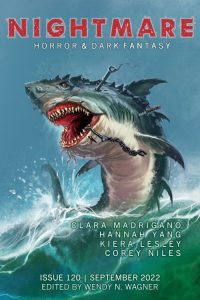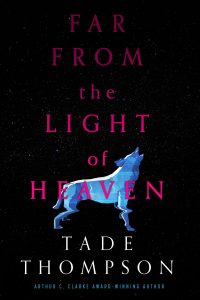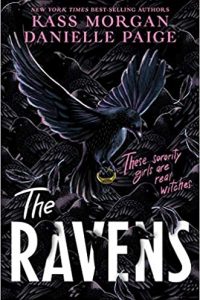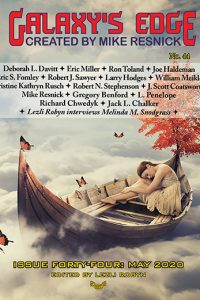Paula Guran Reviews PseudoPod, Nightmare, The Dark, and The Deadlands
 PseudoPod 7/27/22
PseudoPod 7/27/22
Nightmare 8/22, 9/22
The Dark 7/22, 8/22
The Deadlands 7/22, 8/22
There are numerous worthy re-published stories and a single recent original at its supposedly darker sister PseudoPod. In PseudoPod #821’s “Celestial Shores” by Sarah Day & Tim Pratt, a troubled couple visit a vacation rental and wind up somewhere quite terrifyingly unexpected.
Nightmare #119 has two original short stories and a flash piece. Climate change has altered both ecology and human beings in “Every Atom Belonging to Me as Good Belongs to You” by Endria Isa Richardson. Genetic mutation has resulted in Passers (those who still resemble humans) and Others (who don’t). Others need Passers and “link” to and provide for them in gruesome ways. Life finds a horrendous way. Mel Kassel’s flash story “Skitterdead” tells of a ghost entering a centipede’s body to continue the paltry way he lived his life. A man inflicts bodily damage on himself in Adam-Troy Castro’s “The Arm Ouroboros” – or at least on the parts that can still be damaged. Those body parts then become something that eats or something that is eaten in the creepy body horror tale.
Nightmare #120 offers the same number of originals. Sophie’s grandmother in Clara Madrigano’s novelette “The Gold Coin” is a little odd and occasionally speaks of the Good People who, since she found a mysterious gold coin in her own living room, protect and honor her. Sophie’s best friend Millie thinks Grams is, overall, just fine. Later, when they are teenagers, things turn dark. Nicely done for the most part but I feel it sort of peters out at the end. “A Girl of Nails and Teeth” by Hannah Yang is a riveting flash piece about a mother fiercely protecting her daughter, or maybe not. Buying a new home is always a little scary, but Kiera Lesley’s “Concerning the Upstairs Bathroom” makes it terrifying.
The four original stories in The Dark #86 are unusual in that they are not unusual. The magazine established itself with a particular tone and voice; this issue’s quartet is good but standard modern horror. This is not bad, but it is different for The Dark. It’s the first issue with Clara Madrigano co-editing with publisher Sean Wallace. In “Fisheyes” by Ai Jiang a teenaged boy wishes his father would return to the family he deserted years before. He employs magical (but not supernatural) thinking and some icky actions hoping to change things. It’s well written but somewhat juvenile. We meet a mysterious and monstrous stranger in “Nothing Is Wasted” by Seán Padraic Birnie. Birnie’s story offers superbly rendered setting and atmosphere. In James Bennett’s “Idolo”, Drew travels with his fiancé, Renzo, to a remote village in Portugal, ostensibly to visit his fiancé’s dying mother. For Drew, guilty of infidelity, it becomes a horrific place. “A Game at Clearwater Lake” by Gillian Daniels alludes to stereotypical horror movies and pretty much is the short fiction version of such.
The Dark #87 continues mostly in the same vein. Michael Kelly’s “Swim the Darkness” is a moving story about a man dealing with grief after the death of his daughter, who suffered from a rare disease. “Shape-shifter” by Frances Ogamba is set in Nigeria, but the plot itself is not unusual. Cheta suffers from a manic hunger for uncooked food, a horrid rash, and a systemic lack of adequate medical care. The cause of the disease turns out to be spiritual rather than physical. “The Farewell” by Elana Gomel is a quirky tale closer to what The Dark usually publishes. Everyone rises from the dead after 20 days. Millie’s ten-year-old daughter Ariana choses to come back as a young woman rather than a child. This is rare, but not unheard of. Millie refuses to release Ariana “into darkness.” It turns out that more and more people are similarly refusing to let their dear departed go. The balance of the dead and the living in the City is slowly but surely tilting toward the former. A societal problem is beginning to result. Thought-provoking.
There are the usual two originals for The Deadlands in #15. In Leah Bobet’s “Sunday in the Park with Hank”, American men have returned from the war (WWII, I think) tethered to a dead man. It makes relationships challenging. In “This Residue Light” by Ewen Ma, entities that flow through particles of light “bind the spirits of the forgotten and the lost” to themselves in Hong Kong. A woman can capture some portion of these not-alive in photographs. That’s about it. I wish there were more of this story.
The Deadlands #16: “WE” by Phoenix Alexander is listed as fiction but it could just as easily be considered poetry. It’s a declaration by the Ornithischia – sentient machines that constantly run in place to provide energy to run the equipment that keeps those in “end-of-life care” alive. The issue’s other piece of fiction, “The Greatest Mercy” by Micah S. Vernon, is also presented in a non-traditional somewhat poetic form. I think it presents the memories of a dead individual.
Recommended Stories:
“Nothing Is Wasted”, Seán Padraic Birnie (The Dark 7/22)
“Swim the Darkness”, Michael Kelly (The Dark 8/22)
Paula Guran has edited more than 40 science fiction, fantasy, and horror anthologies and more than 50 novels and collections featuring the same. She’s reviewed and written articles for dozens of publications. She lives in Akron OH, near enough to her grandchildren to frequently be indulgent.
This review and more like it in the October 2022 issue of Locus.
 While you are here, please take a moment to support Locus with a one-time or recurring donation. We rely on reader donations to keep the magazine and site going, and would like to keep the site paywall free, but WE NEED YOUR FINANCIAL SUPPORT to continue quality coverage of the science fiction and fantasy field.
While you are here, please take a moment to support Locus with a one-time or recurring donation. We rely on reader donations to keep the magazine and site going, and would like to keep the site paywall free, but WE NEED YOUR FINANCIAL SUPPORT to continue quality coverage of the science fiction and fantasy field.
©Locus Magazine. Copyrighted material may not be republished without permission of LSFF.






